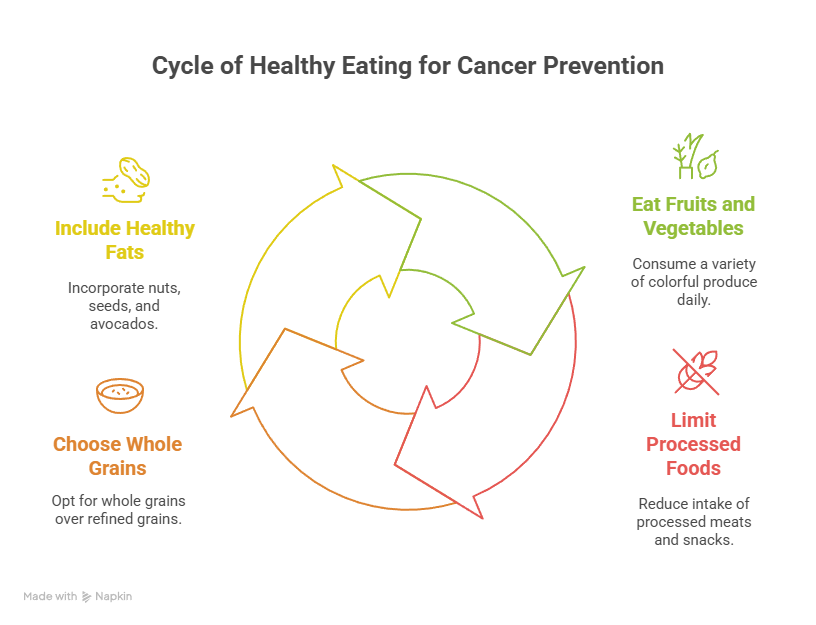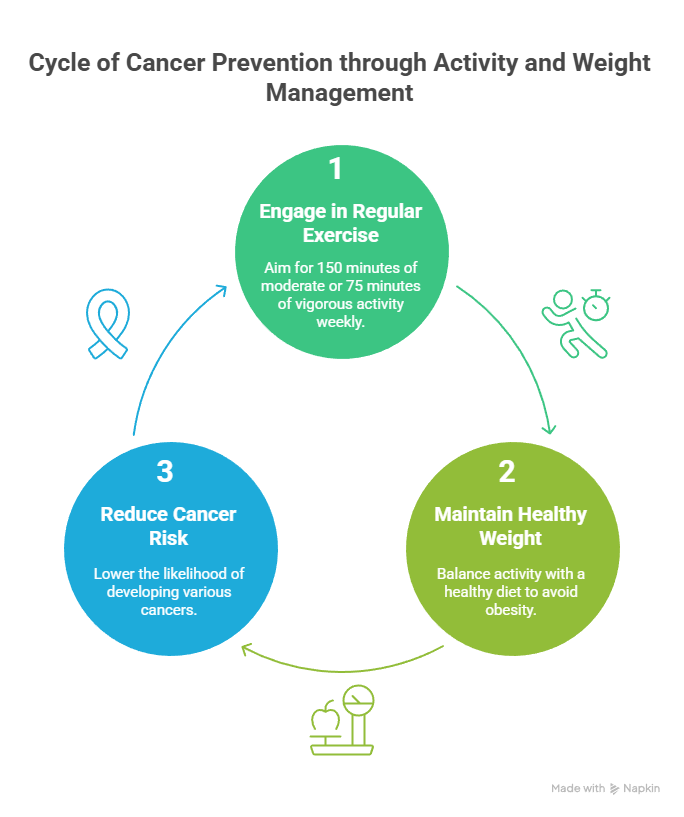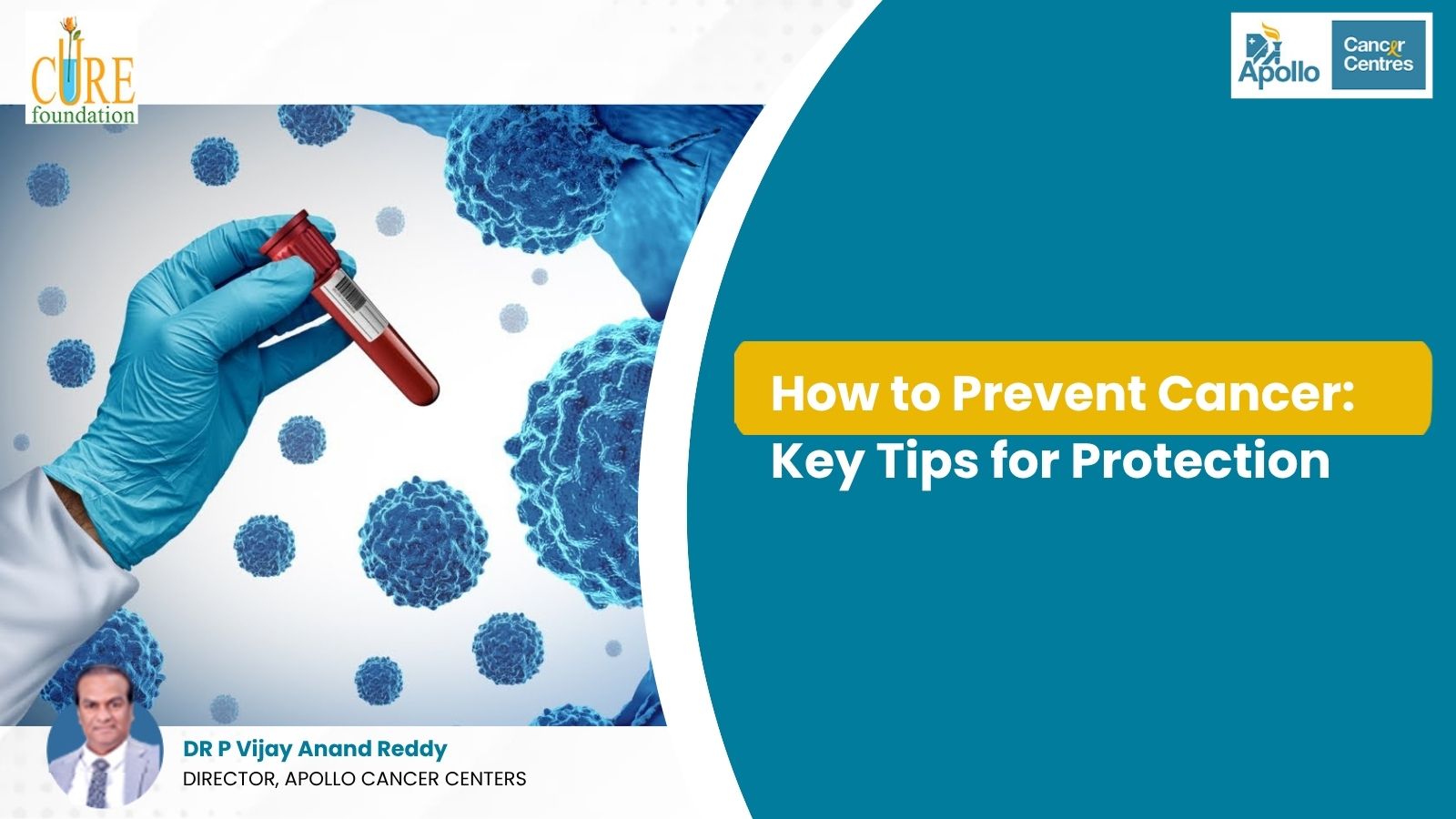Cancer is a word that fills most of us with fear. It’s one of the most dreaded diseases, and for good reason. Each year, millions of people are diagnosed with various forms of cancer, and many of them lose their lives to this disease. However, not all hope is lost. While some risk factors are beyond our control, there are plenty of steps you can take to reduce your chances of developing cancer. The good news is that how to prevent cancer is not just about avoiding the disease but also about living a healthier and more fulfilling life.
In this blog, we’ll explore practical tips to reduce your cancer risk and improve your overall health. With insights from Dr. Vijay Anand Reddy, a leading Cancer Specialist in Hyderabad, we’ll cover simple lifestyle changes, diet choices, and screening methods that can help keep cancer at bay.
Understanding Cancer: What You Need to Know
Before we dive into how to prevent cancer, it’s important to understand what cancer is and how it develops. Cancer occurs when cells in the body begin to grow uncontrollably. These abnormal cells can spread to other parts of the body and form tumors. While the exact causes of cancer can vary, certain factors like genetic predisposition, environmental influences, and lifestyle choices can increase the risk.
Although we can’t change our genetic makeup, there are many ways we can reduce the risk through lifestyle changes. As Dr. Vijay Anand Reddy, a trusted Cancer Specialist in Hyderabad, always emphasizes, taking preventive measures is one of the most effective ways to fight cancer before it starts.
1. Maintain a Healthy Diet

Eating a balanced and nutritious diet is one of the most important steps in how to prevent cancer. The food we eat can have a significant impact on our health, and a poor diet can contribute to the development of various cancers.
- Eat plenty of fruits and vegetables: These foods are rich in vitamins, minerals, and antioxidants that help protect your cells from damage. The more colorful your plate, the better! Aim for a variety of fruits and vegetables every day to get a wide range of nutrients.
- Limit processed foods: Processed meats, such as bacon, sausages, and hot dogs, have been linked to an increased risk of colorectal cancer. Try to avoid them or limit your intake.
- Choose whole grains: Whole grains, such as brown rice, oats, and quinoa, are healthier alternatives to refined grains. They’re high in fiber, which can help reduce the risk of certain cancers, like colorectal cancer.
- Healthy fats: Choose healthy fats like those found in nuts, seeds, avocados, and olive oil. These fats can reduce inflammation and support overall health.
2. Stay Active and Maintain a Healthy Weight

Regular physical activity is another key factor in how to prevent cancer. Being active doesn’t just help you stay fit; it also reduces your risk of several types of cancer, including breast, colorectal, and prostate cancer.
- Exercise regularly: Aim for at least 150 minutes of moderate-intensity exercise, such as brisk walking, or 75 minutes of vigorous exercise, like running, each week.
- Maintain a healthy weight: Obesity is linked to an increased risk of several cancers, including breast, colorectal, and kidney cancer. By staying active and eating a healthy diet, you can maintain a healthy weight and reduce your cancer risk.
Dr. Vijay Anand Reddy, one of the top Cancer Specialists in Hyderabad, often stresses the importance of maintaining a healthy lifestyle and how simple changes like exercise and a balanced diet can make a big difference in preventing cancer.
3. Limit Alcohol Consumption
Drinking alcohol in moderation is another way to reduce your cancer risk. Excessive alcohol consumption is linked to an increased risk of cancers such as breast, liver, and colorectal cancer.
- Drink in moderation: If you choose to drink, limit your alcohol intake. The American Cancer Society recommends no more than one drink per day for women and two drinks per day for men.
- Consider avoiding alcohol altogether: If you’re at high risk for cancer or simply want to take extra precautions, it might be a good idea to avoid alcohol entirely.
4. Don’t Smoke
It’s no secret that smoking is one of the leading causes of cancer, particularly lung cancer. Smoking damages your lungs and increases the risk of several other cancers, including throat, mouth, esophagus, and bladder cancer.
- Quit smoking: If you smoke, the best way to reduce your cancer risk is to quit. Talk to your doctor about resources and support to help you quit smoking for good.
- Avoid secondhand smoke: Even if you don’t smoke, being around others who do can increase your cancer risk. Try to avoid places where smoking is allowed, and advocate for smoke-free environments.
5. Protect Your Skin from the Sun

Skin cancer is one of the most common types of cancer, but it is also one of the most preventable. How to prevent cancer related to the skin starts with protecting yourself from harmful UV radiation.
- Wear sunscreen: Use a broad-spectrum sunscreen with an SPF of at least 30 whenever you’re outdoors. Reapply every two hours, and more often if you’re swimming or sweating.
- Avoid tanning beds: Tanning beds expose your skin to harmful UV rays, increasing your risk of skin cancer.
- Wear protective clothing: When spending time outdoors, wear hats, sunglasses, and clothing that covers your skin to reduce your exposure to the sun.
6. Get Regular Screenings and Check-ups
Early detection is one of the most effective ways to fight cancer. Regular screenings can help detect cancer in its early stages when it’s most treatable.
- Cancer screenings: Depending on your age, sex, and risk factors, you should get screened for certain types of cancer, including breast cancer, cervical cancer, and colorectal cancer. Speak to your doctor about which screenings are right for you.
- Know your family history: If cancer runs in your family, you may be at a higher risk of developing certain types. Dr. Vijay Anand Reddy, a top Cancer Specialist in Hyderabad, advises that knowing your family’s health history is key to taking preventive measures and being vigilant with regular check-ups.
7. Get Vaccinated
Certain viruses can increase the risk of cancer, but the good news is that you can protect yourself through vaccination.
- HPV Vaccine: The human papillomavirus (HPV) vaccine can prevent infections that cause cervical, throat, and anal cancers.
- Hepatitis B Vaccine: Hepatitis B can lead to liver cancer, so getting vaccinated can reduce your risk.
8. Manage Stress
Chronic stress can negatively affect your immune system and increase inflammation in the body, potentially increasing the risk of cancer. While managing stress might not directly prevent cancer, it’s an important part of maintaining your overall health.
- Relaxation techniques: Practice mindfulness, meditation, deep breathing, or yoga to help reduce stress.
- Get enough sleep: Aim for 7-8 hours of sleep each night to support your body’s ability to recover and function optimally.
Final Thoughts
While there is no guaranteed way to prevent cancer, how to prevent cancer involves making lifestyle choices that support your overall health and well-being. By eating a healthy diet, staying active, limiting alcohol and tobacco use, protecting your skin, and getting regular check-ups, you can significantly reduce your risk of developing cancer.
If you have concerns about your health or cancer prevention, consider consulting with a trusted Cancer Specialist in Hyderabad like Dr. Vijay Anand Reddy. His expertise can guide you on the best ways to protect yourself and detect cancer early if needed.
Prevention is always better than a cure, and by following these simple but effective tips, you can take charge of your health and lower your cancer risk.
What are 5 Ways to Prevent Cancer?
1. Eat a healthy diet: Include plenty of fruits, vegetables, whole grains, and limit processed foods.
2. Stay physically active: Exercise regularly and maintain a healthy weight.
3. Avoid tobacco: Quit smoking and steer clear of secondhand smoke.
4. Limit alcohol: Drink in moderation or avoid it altogether.
5. Protect your skin: Use sunscreen, avoid tanning beds, and wear protective clothing.
What Caused Cancer?
Cancer is caused by changes (mutations) in the DNA within cells. These mutations can be triggered by a variety of factors, including genetics, lifestyle choices (such as smoking, poor diet, and lack of exercise), environmental exposures (like radiation and harmful chemicals), infections (like HPV or Hepatitis B), and prolonged inflammation. Often, it’s a combination of these factors over time that leads to the development of cancer.
Can Cancer be Cured?
Yes, cancer can be cured in many cases, especially when detected early and treated promptly. The chances of a cure depend on the type of cancer, its stage at diagnosis, and how well it responds to treatment. Some cancers, like certain types of leukemia, breast cancer, and testicular cancer, have high cure rates with current medical advances. However, for advanced or aggressive cancers, treatment may focus on control and quality of life rather than a complete cure. Early detection, expert care, and timely intervention are key.

